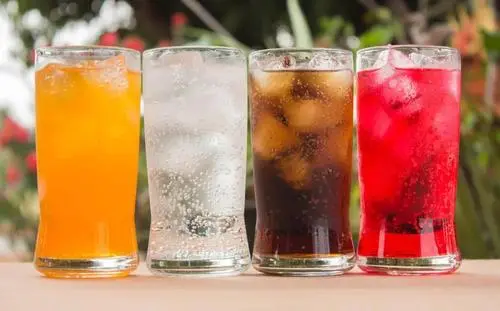High blood pressure does not want to have a cerebral hemorrhage, try to touch these kinds of "water" as little as possible, and you have to endure it if you want to drink it!
High blood pressure is a major risk factor for intracerebral hemorrhage, and certain types of beverages may exacerbate this risk. Knowing and avoiding these beverages is essential to maintain stable blood pressure and prevent intracerebral hemorrhage.
Sugary drinks should be avoided as much as possible. This includes carbonated drinks, fruit drinks, and sweetened tea and coffee. The high sugar content in these drinks may lead to weight gain, increasing the risk of high blood pressure. Excessive sugar intake may also directly lead to an increase in blood pressure.
Alcoholic beverages are another drink that people with high blood pressure need to be cautious about. Alcohol can temporarily lower blood pressure, but drinking too much can cause blood pressure to rebound and rise, increasing the risk of intracerebral hemorrhage. Long-term heavy alcohol consumption can also lead to persistent high blood pressure.
Next, beverages that contain high caffeine should also be restricted. Coffee, strong teas, energy drinks, and certain soft drinks are all high in caffeine. Caffeine is a stimulant and can cause a sharp increase in blood pressure for a short period of time, which can increase health risks for people with high blood pressure.
While there are many products on the market that are billed as "healthy drinks," people with high blood pressure need to be extra careful when choosing. Some so-called "health drinks" may contain hidden sugars or other irritating ingredients that can adversely affect blood pressure.
For people with high blood pressure, the best drink options are water or sugar-free beverages such as sugar-free tea and coffee, as well as low-sugar herbal teas. Maintaining adequate fluid intake can help maintain blood circulation and lower blood pressure.
People with high blood pressure should take aggressive steps to control their blood pressure, including eating a healthy diet, exercising regularly, maintaining a healthy weight, quitting smoking, and limiting alcohol. If necessary, follow your doctor's advice and take antihypertensive medications to control your blood pressure.
Also, supplementing with adequate potassium can help lower blood pressure, as potassium can help balance out the negative effects of sodium. Potassium-rich foods such as bananas, potatoes, spinach, and avocados should be part of the diet of people with high blood pressure. However, consuming large amounts of potassium through beverages may not be the best option, as excessive potassium intake can be harmful to some people, especially those with renal insufficiency.
At the same time, it is also important to control the amount of sodium in the drink, as sodium can cause the body to retain too much water, which can increase blood pressure. Many processed beverages and sports drinks on the market may contain high levels of sodium and should be avoided.
It is very important to develop healthy drinking habits. In addition to avoiding harmful beverages, ensuring that you drink enough water throughout the day is essential to maintain blood circulation and lower blood pressure. Water is the best beverage option, and it doesn't contain sugar, sodium, caffeine, or other additives that may affect blood pressure.
By considering a combination of beverage choices, eating habits, and overall lifestyle, people with high blood pressure can effectively manage their blood pressure levels and reduce the risk of serious health problems such as intracerebral hemorrhage. Ongoing health education and self-awareness are key to achieving this goal. Maintaining healthy blood pressure not only helps prevent bleeding in the brain, but also improves overall health and quality of life.
